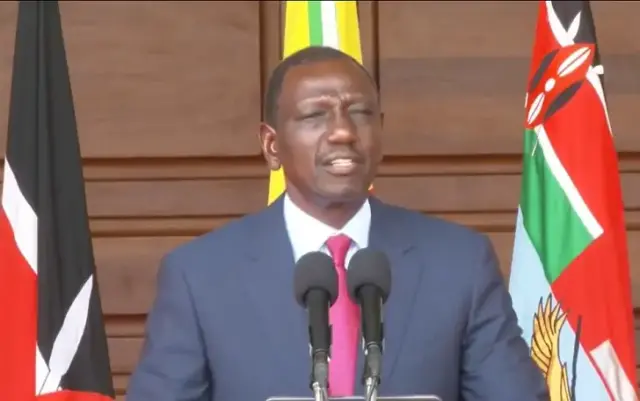
The chance of a deputy president becoming Head of State in an acting capacity is one of the gains achieved through the current constitution.
And though President Uhuru Kenyatta declared yesterday that he was handing over his authority and functions to his deputy William Ruto, legal experts are in agreement that such a declaration is not necessary but automatic whenever the Head of State travels out of the country.
Article 147(3) of the Constitution provides that when the President is absent from Kenya, or when he is temporarily incapacitated, the deputy shall act as President.
This provision ensures that there is no vacuum or contention should the President leave the country without handing over power to the deputy.
The supreme law also allows the President to appoint his Deputy to the top seat in acting capacity even when both are in the country and without giving any reasons for it.
The acting president enjoys wide-ranging powers and authority accorded to his boss by the Constitution. However, the law spells out specific functions that the acting president cannot perform.
Under Article 134, he cannot appoint judges or any other public officers who are appointed by the President, he cannot appoint or dismiss Cabinet Secretaries or other State officers; he cannot appoint or dismiss high commissioners, ambassadors, diplomatic or consular representatives.
Likewise, he cannot exercise the power of mercy which is a preserve of the President and cannot confer honours to individuals in the name of the republic.
Experts argue that what the Constitution has not expressly prohibited the acting president from doing, it has allowed him to do.
The Constitution, therefore, does not prohibit him from exercising the other functions and powers of the President, which include addressing the opening of or any other special sitting of Parliament such as the one held yesterday.
He may also chair Cabinet. He has the duty to direct and co-ordinate the functions of the ministries and Government departments. He may also receive foreign diplomatic and consular representatives, which is a prestigious function of the Head of State.
The Constitution does not prohibit him from assuming the authority of the President as Commander in Chief of the Kenya Defence Forces, which is one of the prime titles of the Head of State. He is also not prohibited from becoming the chair of the National Security Council which is another authority of the President.
-standardmedia.co.ke







